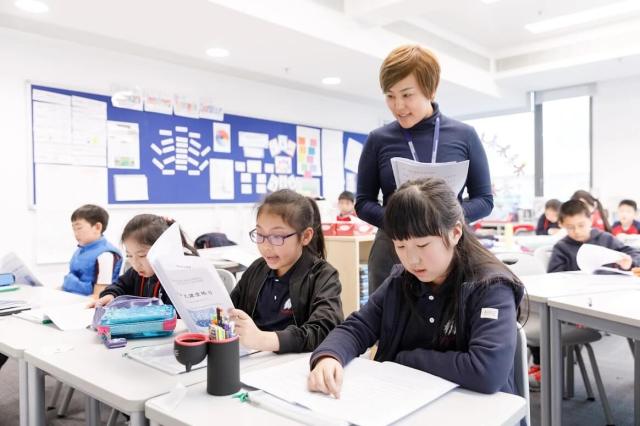Meet our Expert Mandarin Faculty
Every teacher once was a student, and it is fascinating to see how their unique learning experiences shaped their philosophy as a teacher. Our Head of Modern Languages, Ms. Qian Wang opens up about her background and how it inspired her in designing the one-of-a-kind language program that we have at Stamford.
Q: Why did you become a teacher?
I was born in Harbin, Northeast of China, a city known for its beautiful ice sculptures. Raised in a family of teachers, both my grandfather and my mother were school principals. I have always known that I wanted to become an educator to inspire the next generation and make a difference. After graduating from teaching college in Harbin, I went to Singapore to pursue preschool education and then a Master’s Degree in teaching Chinese as a second language to foreigners.
For over 15 years, I have been teaching at various local and international schools in Singapore and Hong Kong, mostly at IB schools, and my experience extends from K-12. My career, so far, has offered me valuable experience in teaching, curriculum planning, and team management. I truly enjoy all facets of teaching and am very grateful that I found my lifelong vocation right from the start.
Q: How did your language learning experience shape you as a language teacher?
Born and raised in China, I did not receive any formal English language education before moving to Singapore. This was a huge challenge for me after moving to Singapore, especially at work, because English is the official language there. So I began to teach myself English by reading newspapers, listening to songs, and participating in language exchanges with English speakers. The effort paid off and after one year, I was able to communicate with my students and parents pretty well.
“My personal experience of acquiring a second language made an impact on my teaching. I developed a deeper understanding of the learning process that my students endure, and was able to relate to them and motivate them by sharing my own experience. I tell them that as long as you make an effort and have fun in it, you will progress and results will come in time. I am a living example that anything is possible!” – Ms. Qian Wang
Q: Did your intercultural experience make an impact when developing the modern language program at Stamford?
My intercultural experience taught me about the importance of culture. I firmly believe that you need to nurture an appreciation of a culture in order to master the language, and everyone in our Modern Language Department at Stamford shares this belief. As a team, we work together to build a strong foundation of Chinese history, culture, and literature among students, as a start for their lifelong pursuit of the Chinese language.
Another aspect of this is to understand the cultural background of our students. This means getting to know our students’ interests and preferred learning styles so that we can design and collate teaching resources that actually meet their learning needs; understanding the best way to motivate them and inspire success.
Q: What makes a successful language program? How is Stamford’s Modern Languages program unique?
I believe the success of a curriculum is reflected through the teachers and the learning outcomes in both its standards and its relevance to the student population. These aspects combined set the students up for life in a global context.
Learning languages is not just about learning the content, which has been the case with traditional Chinese education. The problem with learning content is that it naturally pressures students into memorizing the characters and passages without developing an appreciation for the intricate web of elements that made up the context of that piece of literature. It also does not offer flexibility for students to develop their own approaches to learning, which is fundamental for any lifelong learner. At Stamford, we teach so that students can understand and appreciate the foundation of a language: the culture, the religion, the philosophies, and history. On that foundation, students collaborate, inquire and create with the support from teachers, allowing them to develop important skills such as critical thinking, communication, research, and self-expression.
Stamford’s Chinese curriculum is unique because we tailored it to our student population – one that welcomes language learners of varying levels. By administering formative assessments right at the start, we gather valuable data that allows us to organize students into leveled learning groups where they will thrive. This ensures that students’ learning styles are catered for, needs are met and that they are challenged at the right level. We also design our own learning materials which take reference from the top Chinese curriculum sources. This offers our teachers the flexibility to choose resources that best suit their class and encourages teaching excellence.
Above all else, the level of teamwork and collaboration at Stamford truly sets us apart. I am very proud to work alongside passionate teachers who share the same vision of creating an inspiring world of education for Stamford students.







